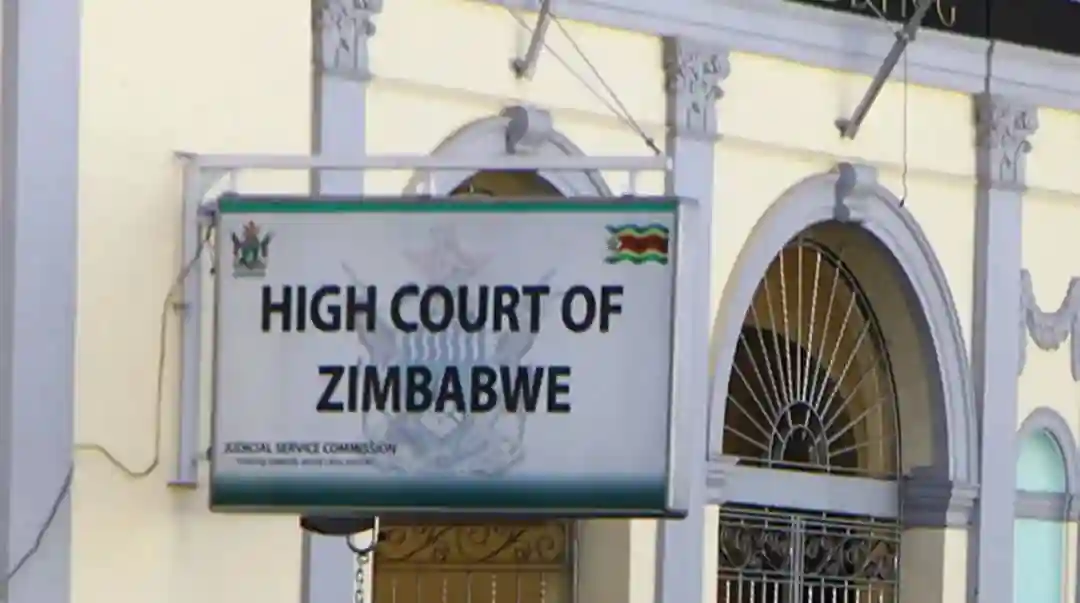President Emmerson Mnangagwa is set to stand trial in the High Court on Monday, 23 September, over his government’s failure to implement legislation aimed at preventing and combating torture, a serious issue in Zimbabwe.
The case has been brought forward by prominent human rights lawyer Obey Shava of Shava Law Chambers, who himself is a victim of torture. He is represented by Tendai Biti from the Zimbabwe Lawyers for Human Rights (ZLHR).
Shava is seeking a court order to compel President Mnangagwa, along with other respondents—including the Minister of Justice, Legal and Parliamentary Affairs, Hon. Ziyambi Ziyambi, Parliament, and the Zimbabwe Human Rights Commission (ZHRC)—to ratify the Convention Against Torture and Other Cruel, Inhuman or Degrading Treatment or Punishment.
This convention was adopted by the United Nations General Assembly in December 1984 and came into force in June 1987. Below is a statement from the ZLHR regarding the case:
In Harare, President Emmerson Mnangagwa is standing trial in court over his government’s reluctance to enact legislation aimed at preventing, prohibiting and combating torture, which is prevalent in the country.
The trial is scheduled to commence on Monday 23 September at 10: AM at Harare High Court, where President Mnangagwa is being sued by prominent human rights lawyer Obey Shava of Shava Law Chambers, who is a victim of torture.In an application filed at Harare High Court on 12 December 2023, Shava, who is represented by Tendai Biti of the Zimbabwe Lawyers for Human Rights (ZLHR), wants the court to compel President Mnangagwa and other respondents namely, Justice, Legal and Parliamentary Affairs Minister Hon. Ziyambi Ziyambi, Parliament, and the Zimbabwe Human Rights Commission (ZHRC), to accent to and ratify the Convention Against Torture and Other Cruel, Inhuman or Degrading Treatment or Punishment, that was adopted by the United Nations General Assembly in December 1984 and which came into operation in June 1987.
The human rights lawyer, who is a victim of torture after he was tortured by some unknown assailants in July 2023, argued that torture, violence, enforced disappearances and abductions are widespread in Zimbabwe, hence President Mnangagwa must be compelled to accede to and deposit the necessary instruments of accession to the Convention Against Torture and Other Cruel, Inhuman or Degrading Treatment or Punishment with the UN and place the same for ratification before Parliament within 12 months of the granting of the court order.
He charged that President Mnangagwa’s failure to accede to the Convention Against Torture and Other Cruel, Inhuman or Degrading Treatment or Punishment is a breach of the Constitution and is also a violation of his right to equal protection of the law codified by section 56 of the Constitution and a breach of his right to constitutionalism and the rule of law guaranteed under section 47 of the Constitution.
Shava bemoaned the systematic pattern of enforced disappearance, abduction, torture and cruel and degrading treatment, which several people including himself, human rights defenders, opposition political party supporters, legislators and ordinary citizens, have been subjected to including being injected with unknown substances.He argued that cases of torture are never investigated and no one is prosecuted for committing such heinous crimes.
The Constitution, Shava argued, protects first generation rights such as the right to life, liberty, fair trial, human dignity and the right not to be subjected to torture, cruel or degrading treatment and that torture is implicitly prohibited under section 48 of the Constitution, which provides for the right to life and also under section 51, which protects the right to human dignity.
The human rights lawyer argued that despite the existence of progressive constitutional provisions on torture, personal liberty, fair trial, legal representation, human conditions of detention and human dignity, the same have not been incorporated into subsidiary legislation and are not being enforced in practice.
Shava, who stated that there is a culture of impunity which has left hundreds of people without legal recourse, said it was regrettable that Zimbabwe has not ratified the International Convention for the Protection of all Persons from Enforced Disappearances, the Convention Against Torture and Other Cruel, Inhuman or Degrading Treatment or Punishment, the Optional Protocol to the International Covenant on Civil and Political Rights or the Rome Statute, which would criminalise enforced disappearances and torture and provide means to seek redress internationally.He said the respondents cited in his application, who are Hon. Ziyambi, President Mnangagwa, Parliament and ZHRC, are bound by customary international law, which is part of international law of Zimbabwe to take measures to ensure the enactment of a law criminalising torture and stated that there is no reason why Hon. Ziyambi, President Mnangagwa, Parliament and ZHRC should fail to accede to the Convention Against Torture and Other Cruel, Inhuman or Degrading Treatment or Punishment.
Shava submitted that Zimbabwe is out of step with the rest of Africa and the world as 162 out of 193 members of the UN have become state parties to the Convention Against Torture and Other Cruel, Inhuman or Degrading Treatment or Punishment.
He contended that out of 55 African countries, only four namely, Zimbabwe, Angola, Tanzania and Sahrawi Arab Democratic Republic have neither signed nor ratified the Convention Against Torture and Other Cruel, Inhuman or Degrading Treatment or Punishment while of the 15 SADC countries, 12 are state parties and only two, Zimbabwe and Tanzania, have neither signed nor ratified the Convention Against Torture and Other Cruel, Inhuman or Degrading Treatment or Punishment.
The human rights lawyer argued that by standing out and refusing to accede to and ratify the Convention Against Torture and Other Cruel, Inhuman or Degrading Treatment or Punishment, Zimbabwe is putting itself in the disrespectable category of pariah states.
As a decent country bound by the rule of law and constitutionalism, Zimbabwe, Shava said, should sign and ratify the Convention Against Torture and Other Cruel, Inhuman or Degrading Treatment or Punishment to ensure protection of fundamental human rights and freedoms and the rule of law.
More: Pindula News

